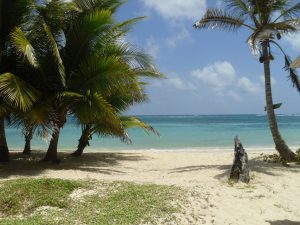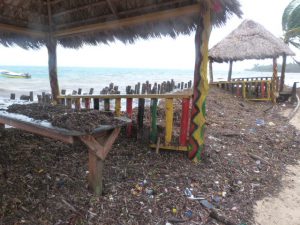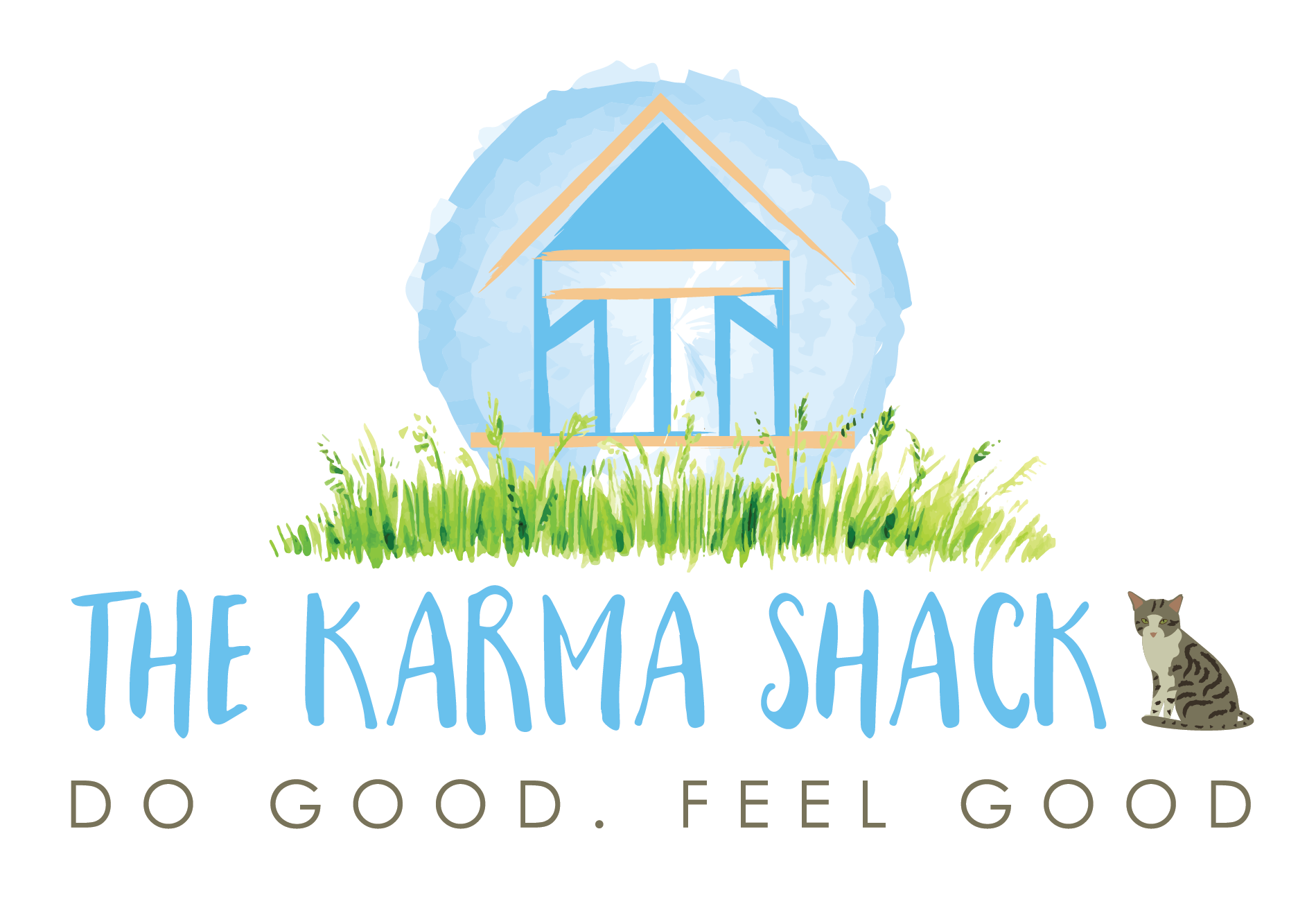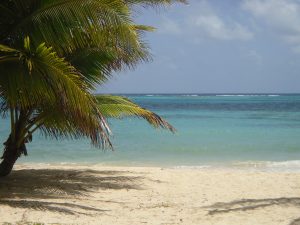
Living on Little Corn Island, Nicaragua for years now, I have often been told by people that I am ‘living the dream’. It’s funny, but I never dreamed of living on a tropical island, it just happened to me. So I usually tell the person that I am happy to live their dream, but that it never had been mine. In the mean time, I do think I have a pretty good life here, don’t get me wrong.
Living on a tropical island is one of those utopian dreams that many people nurture during their whole lives, but only few will actually manifest it. I think it is typical example of something that you learn to wish for, through advertising. Since it is a pretty difficult dream to fulfil (at least that is the common opinion), it is one of the most longed for and most idealised. Life on a tropical island is usually rated as living in paradise, which, according to some old book, is pretty awesome, if you play by the rules. Well, let me burst your bubble. Life in paradise is less than perfect, or, using a recently learned expression: sometimes even less than stellar. If you can’t let go of the idea of paradise’s perfection I can rephrase it for you: life on a tropical island is not to be compared with living in paradise, since it is far from perfect. Let me give you the list:
- The Heat: the tropics are hot! Here we have an average of 26 degrees Celsius (79 Fahrenheit) in the shade, running much higher in the sun, especially when there’s no breeze. Depending on your activity, physical condition and acclimatisation, you may sweat from a few hours a day up to 24/7 year round. Especially doing some work indoors like cooking or cleaning, your clothes will be soaked in no time. You will either have to take multiple showers and change clothes often, which is environmentally unacceptable or you go around sticky and maybe smelly and get used to it. You have to drink tons of water not to get dehydrated. You may get severe sunburn, or a farmer’s tan.
- The Rain: it’s not only hot, it’s also very wet in the tropics. Rainy season is officially 8-9 months long. Our Christmas dinner was nearly cancelled due to the pouring rains, and I have declined an invitation to a New Year’s Eve dinner because it would involve slip-sliding through the mud in the dark(we have only limited paved walkways). I am very happy to live on the beach, where I only bring wet sand into my house, but friends who live inland never stop mopping and cleaning their floors and sheets in rainy season, because there is MUD EVERYWHERE! For a good part of the year their utopian dream is to have clean feet:-)

- The Wind: being surrounded by seas the winds can be quite extreme on our little island. Hard winds will lash the shore, eroding it, churning up the sea weed and dumping it with all its trash onto the beaches. The wind will whip up the sand from the beach and make it fly at eye level, blinding you and covering all vegetation and your whole house (inside and out) with a fine but sticky layer. The saltiness of the winds will burn your vegetables and flowers on a sunny day, and the multiple almond trees that can produce new leaves within a few days will keep dropping them in your yard, so you are raking all day. Ah, and any winds above 20 knots will cancel passenger transportation. Which gets me to the next point
- The Transport: small tropical islands are typically reached in small, open boats. In perfect weather conditions that is a wonderful experience. Alas, usually the weather is far from perfect….the boat ride can be very bumpy, very wet, downright scary or just cancelled. In that case you are stuck. Tourists always say, when they hear about that possibility, that there are worse things than getting stuck on a tropical island. Another utopian bubble to burst: when the boats are cancelled and you get stuck here, the weather sucks, there’s no diving, no snorkelling, no kayaking, no sunbathing, and often no internet-signal too. It’s not that much fun to get stuck here, I tell you. At best you make a lot of new friends sitting for hours on the dock waiting to find out if a boat will go later that day.
- The Erosion, another weather-related point: due to climate changes there are higher seas and stronger winds and depending on the wind direction, the currents can carry off tons of sand overnight, leaving your beach front property a size or two smaller. This sometimes continues for a fortnight. The government is not extremely interested in saving foreigner’s
 properties, so you will have to invest in your own costly shore protection if you want to keep your house from falling in the sea (I have no information about home insurance).
properties, so you will have to invest in your own costly shore protection if you want to keep your house from falling in the sea (I have no information about home insurance). - The Bugs: a big one: yes, we have mosquitoes, sand flies, nasty ants, big spiders, wasps, lots of cockroaches and a gazillion termites. Mosquitoes and sandflies give you very itchy bites, which drives some people mad. There are a lot of theories why some people get bitten so much more than others, but in the end we all get some bites. Mosquito repellent is not a 100% guarantee to stay bite-free, and the poison that you put on your skin to avoid some itchy bites can actu
 ally cause cancer and all sorts of other horrible internal damage to your body. Long sleeves and long pants work relatively well, but are hot to wear in this climate. Mosquitoes may give you Dengue, Chikungunya or Zika, none of them very pleasant diseases, but you will survive. Bugs are part of tropical island life. Ants can get annoying too. They may invade your house, get into your delicious coconut bread that you saved as an after-party-snack, or just bite you while you stand around minding your own business. Spiders come in all sorts and sizes, and surprisingly it is one of the smallest ones that bites, while the big tarantulas and wolf spiders don’t really bother us. Still, if you are scared of spiders, you may regularly go through some difficult moments running into them, since you’re living in their territories on our tropical island. And the termites…well, they just eat your house, that’s all.
ally cause cancer and all sorts of other horrible internal damage to your body. Long sleeves and long pants work relatively well, but are hot to wear in this climate. Mosquitoes may give you Dengue, Chikungunya or Zika, none of them very pleasant diseases, but you will survive. Bugs are part of tropical island life. Ants can get annoying too. They may invade your house, get into your delicious coconut bread that you saved as an after-party-snack, or just bite you while you stand around minding your own business. Spiders come in all sorts and sizes, and surprisingly it is one of the smallest ones that bites, while the big tarantulas and wolf spiders don’t really bother us. Still, if you are scared of spiders, you may regularly go through some difficult moments running into them, since you’re living in their territories on our tropical island. And the termites…well, they just eat your house, that’s all. - The Dogs: they are everywhere. They go around without a leash or even a collar. Most of them are friendly, up to a point where they will follow you everywhere, which can get you in trouble when you want to walk into a store or a restaurant or into your own house. They will bark at night, pull over your trash can, and dig gigantic holes in your yard, searching for crabs. Some of them are mean and bite or kill your kitten. They are present in most restaurants, since all foreign restaurant owners have adopted a few dogs. That’s another thing on this island: you cannot avoid having to adopt a couple of dogs. So if dogs are not your favourite pet, don’t come and live here, because they are in your face all the time!!!
- The Aquifer: little islands have small aquifers, that usually get replenished just by rain water. Population growth and a few dry years may make your tropical paradise much less inhabitable. Salinization of ground water, contamination with sewage and chemicals, or just downright depletion can all contribute to an unsustainable situation. Do you want to live in a place where they have to ship in your daily water?
- Trash: the last one on the long list of “natural” reasons why you may consider not wanting to live on a tropical island. What will you do with your trash? We don’t have a trash pick up system, and there is no central garbage dump. Burning is bad for the atmosphere, and some of the plastic will leach into the soil. Burying will affect the water quality. Unless you are one of those reduce/reuse/recycle experts, you will spend a fortune shipping your trash off the island.
- The Limited Availability of Basic Stuff: the other end of that trash problem: your consumption patterns. There are a whole lot of things you cannot get on a little tropical island, although with the growth of tourism that is definitely improving. Basic foods, yes. But don’t go looking for anything whole-grain or fancy. Limited fresh produce, the rest canned and very expensive (and a lot of trash afterwards!). Forget broccoli, snow peas, mushrooms, sprouts, berries or kiwis. All non-food products are of the cheapest and worst quality and will fall apart or stop functioning in no time, creating a lot of unwanted trash. A few clothes and shoes are available, and a couple of cans of paint and some hardware. Oh, and everything is up to three times more expensive than on the mainland, due to all the transport involved to get it here. Mostly, you have to get everything yourself on the mainland, which involves either a lot of travelling or having a lot of reliable connections in the capital that can organise the shopping for you. You may feel you are living in constant lack, if you try to hold on to consumption patterns that you had before you arrived.
- Lack of proper healthcare/dental care/etc.: a small health centre provides very basic care, but cannot handle real emergencies that go beyond a few stitches. Then you have to get onto that same open panga (or hire a private one that won’t leave until the gas has been paid) to get off the island and from there on a flight to the capital to get to a good hospital. If you have a condition that may require emergency health assistance you don’t want to live on a little tropical island. Also, if you can’t handle toothaches or walking around with a broken tooth for a few weeks/months until you travel to the mainland, consider another location to settle.
- Communications: we have cell phone service and internet too, but it is spotty to say the least, and sometimes it just does not work at all. A few people relying on internet for their work get up at 3am to get the full bandwidth. If you cannot live without 24/7 wifi, a little tropical island may not be your place to dwell.
- Limited things to do: small islands offer a limited amount of things to do to fill your days with: swimming, diving, snorkelling, fishing, kayaking, paddle boarding, yoga, massage and some short hikes, but that is about it. A book or a game, and maybe some gardening around your own house. Ah, of course, I forgot that one: you will be forever working on the maintenance of your property, since the salt air eats up all hardware, paint and even cement. OK, you won’t get bored then.

- Temptations: remote little islands can also be “paradise” in a different way: they usually offer easy access to large amounts of cheap drinks and drugs. The visiting tourists are here to have good time, so they will be partying a lot, and it is easy to join them every night (or day). If you are trying to get away from a life of addictive habits, this particular side of our little paradise may be detrimental for your health and well-being.
- The Tourists: funny, isn’t it: you came here as a tourist, but once you live here for a while, you sometimes wish they would all disappear, with their OFF-smell, their trash, their drunken loudness, and their endless FAQ’s. (FAQ’s: an unexpected downside of living on a little tropical island. I will write about that in another post. If you cannot handle repetitive curious questions, a small touristy island is not your dwelling of choice). When they like the island as much as you do, they might stay and buy a property right next to yours and open a bar there. So far for living in paradise. But they also bring good atmosphere, help out in the community, clean beaches and maybe make your money, so focus on liking them, if you can. Otherwise: don’t come live in paradise, it’s full of tourists!
- The Local Community: apart from tourists, your tropical paradise island will be full of two types of very different people living there: locals and foreigners (I refuse to call them ex-pats. I think that is a politically incorrect name. When people from rich countries go and live in a developing country they call themselves expats, but when people from poor countries move into the rich countries, they are called (illegal) immigrants or at best foreigners, but never expats. What is the difference?). The local community has its own way of doing things, organising things, their own set of rules and regulations, habits and traditions. They have no reason to let go of all that, just because you decided to start living on their island. The foreigners already living on the island will give you a false sense of “home”, which might make you believe that things are being (or getting) done in similar ways to what you were used to before you moved to paradise. Burst your bubble: everything is done differently here: from buying land to building a house to organising transport to hiring workers to doing laundry to handling trash or getting married. If you cannot let go of your western ideas of how things should be done, you’re up for a tough time in paradise.
- Self-Confrontation: moving to a small remote island confronts you with yourself in many ways. You thought your life was going to be perfect because you were moving to paradise. But then things turn out anything but perfect. Possibly you will start blaming it on all of the above points: the weather, the bugs, the people, lack of communications, the stuff you are missing…… But what it all boils down to is that you’re having a hard time because you are resisting all sorts of changes in your life, because you cannot let go of certain habits, ideas, comforts and because you want to keep up the idea that life on a tropical island is perfect, because that’s the dream they have been selling you all your life.
Let me get this straight: this whole list is not a complaint about how miserable life is on our little island. It’s a reality check. If you already start cringing just reading about these inconveniences, you better let go of the dream of living a paradisiacal life on a little tropical island. I have written this all with a smile on my face, because I’ve learned to love and deal with all of the above. Next week I will rewrite this list, and show you that it’s not the fault of all the above points that your paradise isn’t so perfect……

 the bucketful), white sandy beaches and turquoise seas (with one lost crocodile that is keeping us from swimming at the moment), a relaxed lifestyle (for most of us) and a hammock (I personally believe I have the best hammock on the island).
the bucketful), white sandy beaches and turquoise seas (with one lost crocodile that is keeping us from swimming at the moment), a relaxed lifestyle (for most of us) and a hammock (I personally believe I have the best hammock on the island).  f about the personal stories that we tell about ourselves, and how we can get really stuck in them, or attached to them, while we actually have the option to change that story every minute of our conscious life. After reading that, I was even less willing to repeat my ‘island story’ time and again, and I would kindly explain the asker why I didn’t want to answer. I was going through this phase where I really wanted to let go of my story and just be in the moment, not attached to the past.
f about the personal stories that we tell about ourselves, and how we can get really stuck in them, or attached to them, while we actually have the option to change that story every minute of our conscious life. After reading that, I was even less willing to repeat my ‘island story’ time and again, and I would kindly explain the asker why I didn’t want to answer. I was going through this phase where I really wanted to let go of my story and just be in the moment, not attached to the past. Why does everybody ask the same questions? Do we have an innate human need to know certain things, or is it cultural behaviour? Are certain questions age or nation-related? Which questions are asked to confirm their beliefs, and which ones are meant to explore beyond the limits of their comfort zone? How much do people idealise life on a tropical island, and to what measure do they want to see it confirmed as an unattainable goal?
Why does everybody ask the same questions? Do we have an innate human need to know certain things, or is it cultural behaviour? Are certain questions age or nation-related? Which questions are asked to confirm their beliefs, and which ones are meant to explore beyond the limits of their comfort zone? How much do people idealise life on a tropical island, and to what measure do they want to see it confirmed as an unattainable goal? 
